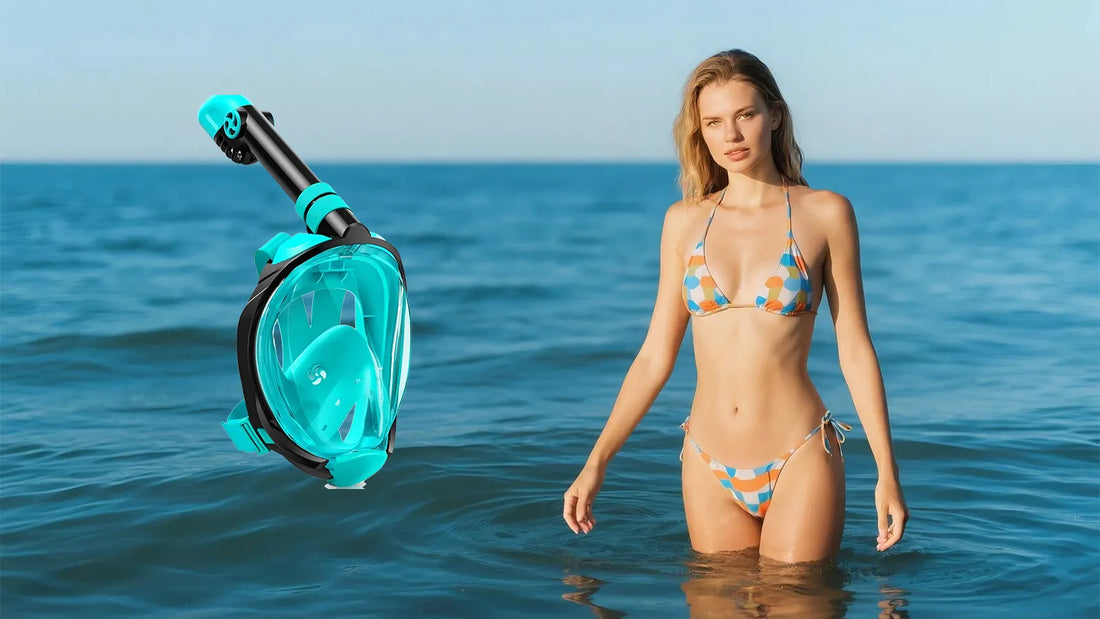Have you ever dreamed of exploring the vibrant underwater world but didn't know where to start? Snorkeling is the perfect way to dive into this adventure, even if you're a beginner. With the right guidance and preparation, you can enjoy the beauty of marine life without needing extensive training or expensive equipment. This step-by-step guide will walk you through everything you need to know to get started.
What is Snorkeling?
Snorkeling is a water activity that allows you to observe underwater life while swimming on the surface. It involves using a snorkel, a mask, and fins to breathe and move effortlessly in the water. Unlike scuba diving, snorkeling doesn't require heavy gear or certification, making it accessible to almost everyone.
Why Snorkeling is Perfect for Beginners
Snorkeling is an excellent choice for beginners because it's easy to learn and doesn't require advanced swimming skills. It's also a low-cost activity that can be enjoyed in various locations, from tropical beaches to calm lakes. Plus, it's a fantastic way to connect with nature and experience the wonders of the ocean.
Essential Snorkeling Gear
Before you start snorkeling, you'll need the right gear. Here's a list of essential equipment:
- Snorkel Mask: A good mask provides a clear view underwater and fits snugly on your face without leaking.
- Snorkel: This tube allows you to breathe while your face is submerged in the water.
- Fins: Fins help you move efficiently through the water with minimal effort.
- Wetsuit or Rash Guard: Depending on the water temperature, you may need a wetsuit or rash guard to stay warm and protected.
- Snorkel Vest: A snorkel vest adds buoyancy and safety, especially for beginners.
How to Choose the Right Snorkeling Gear
Selecting the right gear is crucial for a comfortable and enjoyable snorkeling experience. Here are some tips:
- Mask Fit: Ensure the mask fits your face properly. Test it by placing it on your face without the strap and inhaling slightly. It should stay in place without air leaks.
- Snorkel Type: Choose a snorkel with a comfortable mouthpiece and a purge valve to clear water easily.
- Fin Size: Fins should fit snugly but not too tight. Test them in water to ensure they don't cause discomfort.
Basic Snorkeling Techniques
Once you have your gear, it's time to learn some basic techniques:
- Breathing: Practice breathing through the snorkel while keeping your face in the water. Relax and take slow, deep breaths.
- Floating: Use a snorkel vest or practice floating on your stomach to conserve energy.
- Kicking: Use slow, steady kicks with your fins to move smoothly through the water.
Safety Tips for Snorkeling Beginners
Safety should always be your top priority. Follow these tips to ensure a safe snorkeling experience:
- Snorkel with a Buddy: Never snorkel alone. Always have a buddy with you in case of emergencies.
- Check Weather Conditions: Avoid snorkeling in rough or stormy weather. Calm, clear waters are ideal.
- Stay Close to Shore: As a beginner, stay in shallow waters where you can easily stand if needed.
- Be Aware of Marine Life: Respect marine life and avoid touching or disturbing it.
Best Snorkeling Locations for Beginners
Choosing the right location can make your snorkeling experience even better. Here are some beginner-friendly spots:
- Protected Bays: These areas often have calm waters and abundant marine life.
- Coral Reefs: Coral reefs are teeming with colorful fish and other marine creatures.
- Shallow Lagoons: Shallow lagoons are perfect for practicing snorkeling skills.
How to Overcome Common Challenges
As a beginner, you might face some challenges. Here's how to overcome them:
- Mask Fogging: Apply anti-fog solution or spit into your mask and rinse it to prevent fogging.
- Water in the Snorkel: If water enters your snorkel, blow it out forcefully through the purge valve.
- Fatigue: Take breaks as needed and avoid overexerting yourself.
Practice Makes Perfect
Like any skill, snorkeling improves with practice. Start in calm, shallow waters and gradually build your confidence. Over time, you'll become more comfortable and efficient in the water, allowing you to explore more challenging environments.
Environmental Responsibility
As a snorkeler, it's essential to protect the underwater environment. Follow these eco-friendly practices:
- Avoid Touching Coral: Coral is fragile and can be easily damaged by touch.
- Don't Litter: Always dispose of trash properly and avoid leaving anything behind.
- Use Reef-Safe Sunscreen: Choose sunscreen that doesn't harm marine life.
Snorkeling is a gateway to an incredible underwater world, and with this guide, you're well on your way to becoming a confident snorkeler. Remember to stay safe, respect the environment, and most importantly, have fun. The ocean is waiting for you—dive in and discover its wonders!

